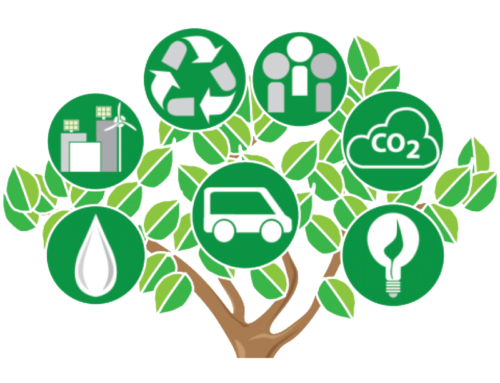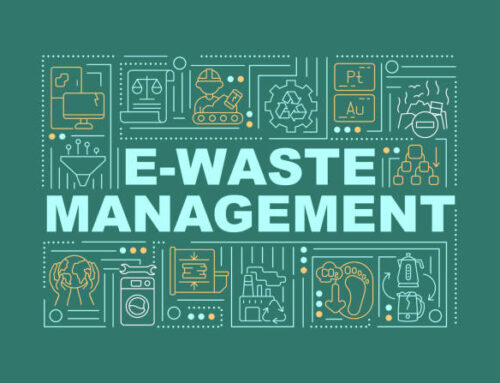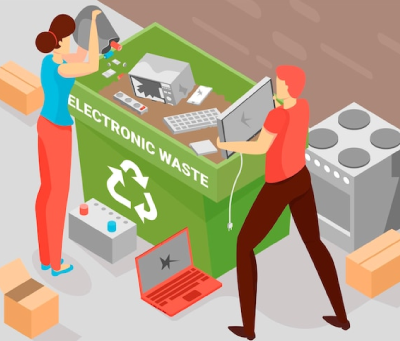
E-waste Management: better opportunity for companies
Because of new technology and our need for connection in both our personal and professional life, the usage of and demand for electronics has reached previously unheard-of heights. And in response to our needs during the epidemic, this has quickly changed. The E-waste management company Delhi is responsible for curbing the electronic waste around the Delhi-NCR area.
Our reliance on technology has a significant negative influence on electronic waste. Let’s look at the issue, the hazards it entails, and what businesses can do to integrate e-waste into their long-term sustainability plan.
What is E-waste Management?
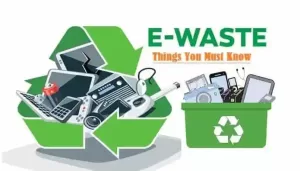 Historically, computers, servers, monitors, printers, and mobile phones have gotten categorized as e-waste. This word now encompasses a far broader range of items get utilized in homes and companies, such as toys, tools, music, automobiles, and wearable technology. These products turn into e-waste with the help of an E-waste management company Delhi, after their useful lives are through.
Historically, computers, servers, monitors, printers, and mobile phones have gotten categorized as e-waste. This word now encompasses a far broader range of items get utilized in homes and companies, such as toys, tools, music, automobiles, and wearable technology. These products turn into e-waste with the help of an E-waste management company Delhi, after their useful lives are through.
The 2020 UN Worldwide E-waste Monitor states that e-waste is the greatest global waste stream, contains a lot of elements that are dangerous to the environment and human health, and is seldom recycled. Additionally, important components included in e-waste, such as gold, copper, palladium, lithium, and cobalt, lose value when they are not recycled.
Hidden dangers behind e-waste:
Environment-related effects:
 Lead, mercury, per and poly-fluoroalkyl compounds, chlorofluorocarbons, brominated fire retardants, hydro chloroform carbons, and persistent organic contaminants are only a few of the elements found in e-waste. E-waste that is not recycled contaminates landfills, harms the water system through leachate, and pollutes the environment.
Lead, mercury, per and poly-fluoroalkyl compounds, chlorofluorocarbons, brominated fire retardants, hydro chloroform carbons, and persistent organic contaminants are only a few of the elements found in e-waste. E-waste that is not recycled contaminates landfills, harms the water system through leachate, and pollutes the environment.
Communities that are close to landfills are more at risk of chemical exposure from incorrect E-waste disposal. Recycling activities frequently cause environmental pollution, which affects nearby populations’ quality of life. The e-waste management company Delhi looks after these issues to provide the proper environment for the public.
Strategies for tackling the e-waste problem:
Companies that are familiar with the risks associated with e-waste employ a variety of strategies to reduce these problems. These strategies may include contract terms, downstream recycling vendor thorough research and confirmation, extended producer responsibility programs, and internal corporate standards.
Electronics are already emerging as a substantial waste material, making e-waste concerns serious to businesses as more goods become intelligent and connect to the internet.
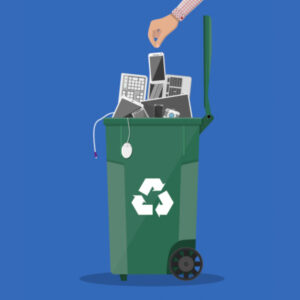 Whether as a result of the recent realization that there may be e-waste in new items or the improvement of programs for already existing products, companies are at various phases of their e-waste management journey. The initial stages are to identify material dangers provided by e-waste, evaluate the measures already done, and sketch out a strategy for the future, regardless of where a firm is in the lifespan of an electronics product.
Whether as a result of the recent realization that there may be e-waste in new items or the improvement of programs for already existing products, companies are at various phases of their e-waste management journey. The initial stages are to identify material dangers provided by e-waste, evaluate the measures already done, and sketch out a strategy for the future, regardless of where a firm is in the lifespan of an electronics product.
Early in its e-waste management journey, the manufacture of one market-leading wearable discovered a potential e-waste risk in a new product. As a result, the manufacturer sought strategic advice from ERM to understand the essential elements of e-waste risk, such as risks associated with the downstream supply chain and vendor auditing.
The discourse surrounding e-waste is still developing as businesses confront the brand and reputational problems that e-waste poses. Mining of the primary minerals required for electronics is not economically viable over the long run as the globe moves from a linear to a circular economy.
The E-waste recycling company and the e-waste management company Delhi invest in recycling and recovery technologies because they improve future profitability even if the technology for effectively recovering and recycling crucial components is still under development.

